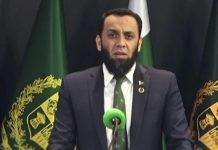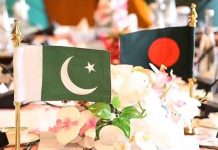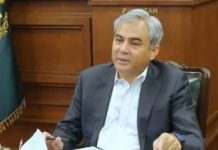Myanmar‘s junta chief will be excluded from an upcoming ASEAN summit, the group said Saturday, a rare rebuke as concerns rise over the military government’s commitment to defusing a bloody crisis.
Foreign ministers from the Association of Southeast Asian Nations agreed at an emergency meeting late Friday that Min Aung Hlaing would not be invited to the October 26-28 summit, current ASEAN chair Brunei said.
The bloc, widely considered a toothless organisation, took a strong stand after the junta rebuffed requests for a special envoy to meet with all parties concerned — a phrase seen to include ousted civilian leader Aung San Suu Kyi.
The statement noted “insufficient progress” in the implementation of a five-point plan agreed by ASEAN leaders in April to end turmoil following a coup in February.
Some member states recommended giving “space to Myanmar to restore its internal affairs and return to normalcy”.
It was decided “to invite a non-political representative from Myanmar” to the summit, “while noting the reservations from the Myanmar representative”, the statement said.
Mustafa Izzuddin, a global affairs analyst at consultancy Solaris Strategies Singapore, called the exclusion “a political stopgap measure for ASEAN to assuage international criticism”.
“Second, it ensures its regional reputation as an organisation that can still play an active role in Southeast Asian affairs,” he told AFP.
Izzuddin also said the move sent a “political signal” to the junta “that ASEAN is not one to be pushed around, and that Myanmar must show its seriousness and its commitment to roll out the five-point plan”.
Myanmar, mostly ruled by the military since a 1962 coup, has been a thorn in ASEAN’s side since it joined in 1997.
Elections in 2015 won by Suu Kyi’s National League for Democracy (NLD) party ushered in the start of civilian rule — but this was cut short by the coup.
ASEAN has been under international pressure to address unrest that erupted after the putsch, including massive protests; renewed clashes between the military and ethnic rebel armies in border regions; and an economy spiralling into freefall.
The bloc has expressed disappointment at a lack of cooperation from the junta, which continues to crack down brutally on dissent. More than 1,000 civilians have been killed, according to a local monitoring group.
Part of the consensus was to allow a long-delayed visit by a special envoy, Brunei’s Second Foreign Minister Erywan Yusof.
ASEAN has insisted that he meets with all parties concerned, but the junta rejected any proposed meetings with people on trial, among them Suu Kyi, who is facing charges including sedition and flouting coronavirus restrictions during last year’s polls.
Member nations had already voiced their disappointment at the path the junta has chosen.
“Malaysia is very disappointed that after six months from April, Minister Erywan has yet to be able to be to go to Myanmar,” Malaysian Foreign Minister Saifuddin Abdullah said Friday ahead of the meeting.
“If there is no real progress then Malaysia’s stance will remain: that we will not want the general to be attending the summit. No compromise on that.”
Indonesian Foreign Minister Retno Marsudi said in a tweet after the meeting that her country had proposed that Myanmar “should not be represented at the political level” at the summit until it restores “its democracy through an inclusive process”.
ASEAN’s key dialogue partners also threw their weight behind the call for the special envoy to meet Suu Kyi.
In a joint statement Friday, the US, Britain, Australia, Canada, South Korea, New Zealand, Norway and East Timor said they were “deeply concerned about the dire situation in Myanmar”, and urged Naypyidaw to “engage constructively” with Erywan.
The junta — officially known as the State Administration Council — has promised to hold elections and lift a state of emergency by August 2023.
ASEAN’s other members are Cambodia, Laos, Philippines, Singapore, Thailand and Vietnam.

















